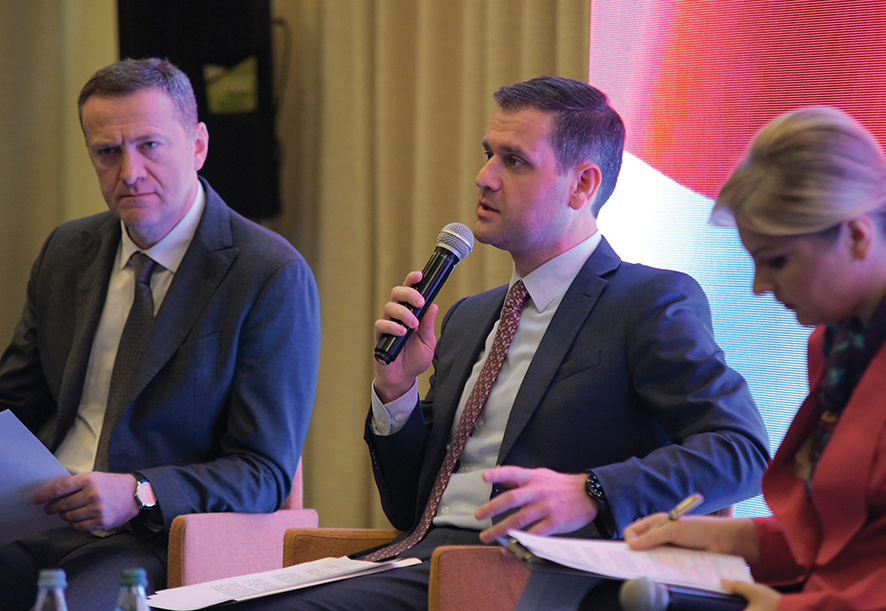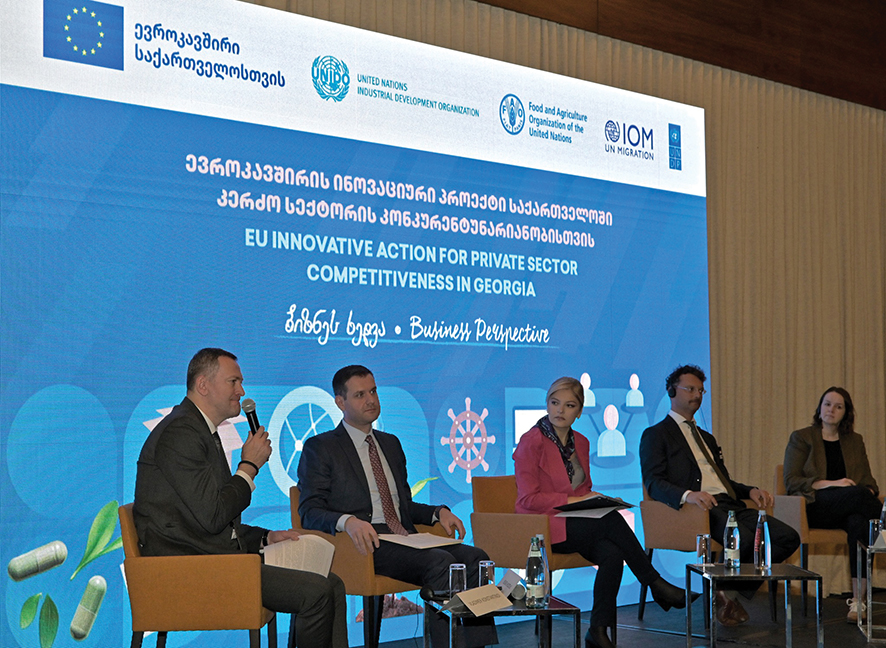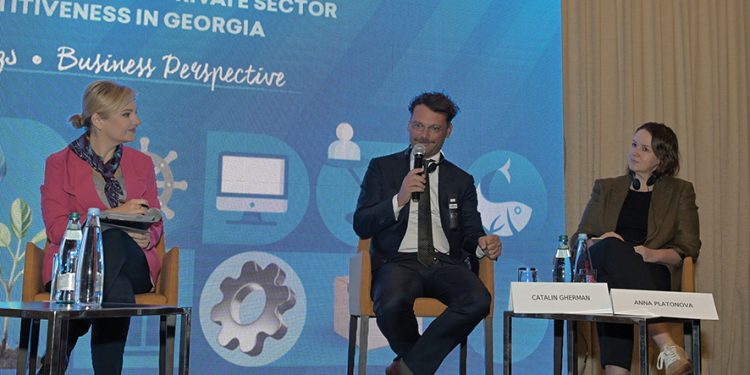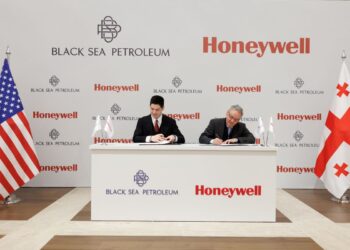The European Union and the United Nations presented the accomplishments of their EUR 5.1 million initiative, “EU Innovative Action for Private Sector Competitiveness in Georgia”. Over five years, from 2019 to 2023, this program had a profound impact on the business development landscape in Georgia. It supported significant strides in advancing the circular economy, fostering robust business clusters, enhancing legislative frameworks, and boosting Georgian producers’ presence in European markets.
This landmark program directly benefitted up to 100 small and medium-sized enterprises across the country and played a significant role in establishing and nurturing four business clusters, some of which have garnered international acclaim from the European Cluster Excellence Initiative. Furthermore, the program created learning and development opportunities for over 1,500 entrepreneurs and farmers across Georgia, strengthening their business skills and increasing their prospects in the international marketplace.
With financial support from the European Union, the program was implemented in close partnership with the Georgian Government and the private sector, with the active involvement of four UN agencies: the United Nations Development Program (UNDP), the Food and Agriculture Organization (FAO), the United Nations Industrial Development Organization (UNIDO), and the International Organization for Migration (IOM).
The results of this collaborative effort were celebrated at an event on 14 November, where distinguished speakers from the government and the private sector highlighted its impact.
“The EU’s Innovative Action for Private Sector Competitiveness in Georgia has unveiled various opportunities for the private sector, laying the foundation for ongoing economic progress,” said Catalin Gherman, Deputy Head of Cooperation at the Delegation of the European Union to Georgia. “The European Union remains unwavering in its support for Georgia’s private sector, actively promoting green and sustainable practices and cultivating the prospective growth of Georgia’s business and industrial landscape.”

Douglas Webb, UNDP Resident Representative a.i. in Georgia, noted that the private sector is the crucial player in safeguarding economic and social rights and achieving sustainable development for all.
“Together with the European Union and UN agencies, UNDP is working hand-in-hand with small and medium-sized entrepreneurs across the country to support Georgia’s transformative journey toward a strong, inclusive, and sustainable economy, focused on the best interests of people and the planet,” Webb noted. “Our support benefitted one of Georgia’s strongest clusters of packaging companies and producers, PMAG, which has increased its membership network to over 60 companies, excelled in digital transformation, introduced environment-friendly business practices, such as sustainable production and recycling, and gained international recognition from the European Cluster Excellence Initiative and the World Packaging Organization. From 2018 to 2022, these impressive transformations facilitated a more than two-fold increase in sales across the entire PMAG network.”
“Under this project, FAO has supported the local production of saplings through the development of a legislative framework together with the National Food Agency and the Scientific Research Center of Agriculture,” noted Javier Sanz Alvarez, the FAO Program Coordinator. “We also supported around 20 nurseries by increasing their technical capacities and providing equipment. Moreover, FAO has trained up to 1000 producers on modern sustainable practices for agricultural production and facilitated access to markets for local products. All in all, the achievements of this project will greatly contribute to achieving a more sustainable agricultural production in terms of quantity, quality, and environmental impact, implementing good agricultural practices with EU standards.”
“UNIDO directly supported 36 SMEs and trained/coached up to 300 beneficiaries across different business sectors in Georgia,” said Giorgi Andguladze, UNIDO National Project Coordinator. “UNIDO helped producers overcome constraints related to production and quality management, allowing them to sustainably resume their business operations. Notably, one company obtained Good Distribution Practice (GDP) certification and gained access to the market. With UNIDO’s assistance, Georgian Marine Fishing and Biopharmaceutical Clusters managed to bring together different producers and through joint activities achieved the objectives, which would’ve been left unresolved without the assistance of the EU-funded project.”
“Cultivating a dynamic synergy between the diaspora and local businesses, the International Organization for Migration has mapped the high-profile Georgian diaspora in the EU and globally,” said Sanja Celebic Lukovac, IOM Chief of Mission. “Through our extensive database, comprising approximately 4000 diaspora profiles, we have actively engaged with hundreds of individuals, exploring their skills, experience, and interests. Our overarching goal has been to establish robust connections between local businesses and the diaspora, facilitating the effective use of diaspora resources, knowledge, and ideas. This initiative has not only strengthened trade but also facilitated capacity building and driven collaborative initiatives. The diaspora’s role as agents for local development was successfully pilot tested.”

One of the program’s most notable achievements is the substantial support provided to business clusters in Georgia, increasing the opportunities for participating companies and entire business sectors to excel both nationally and globally. The European and the United Nations assisted four business clusters, each contributing to specific areas of Georgia’s economy:
1. Packaging Cluster – PMAG, the ECEI Bronze Label holder, full member of the World Packaging Organization (WPO). Supported by: UNDP.
2. Seed and Seedlings Cluster, facilitating the National Seedling Certification System development, technical support for nurseries, farmers training and Farmers’ Markets. Supported by: FAO.
3. Georgian Biopharmaceutical Cluster. Supported by: UNIDO.
4. Marine Fishing Cluster. Supported by: UNIDO.
Furthermore, the program helped strengthen public-private partnerships across various areas of business development, including waste management. In 2023, regional and local authorities in both western and eastern Georgia reiterated their commitment to this cause by signing declarations of intent with packaging companies and international partners aimed at enhancing waste management practices and promoting separation and recycling at the municipal level.
The program also played a pivotal role in creating strong connections between Georgia’s small and medium-sized producers and the Georgian diaspora in EU Member States. This collaborative approach fostered cooperation and partnership across borders, strengthening Georgia’s presence in the global marketplace.
The “EU Innovative Action for Private Sector Competitiveness in Georgia” opened new opportunities for the private sector and set the stage for continued advancement towards more up-to-date, sustainable, and greener business practices. The European Union and the United Nations remain committed to supporting Georgia on its journey toward a sustainable and prosperous future.
# # #
Background Information:
The EU Innovative Action for Private Sector Competitiveness in Georgia is an EU-funded initiative, boasting an investment of EUR 5.1 million. This initiative is carried out in partnership with UNDP, the Food and Agriculture Organization (FAO), the United Nations Industrial Development Organization (UNIDO), and the International Organization for Migration (IOM), in collaboration with Georgia’s public and private sectors. It aims to promote entrepreneurship, enhance legislative frameworks, provide better access to finance, and strengthen cooperation with EU Member States.














